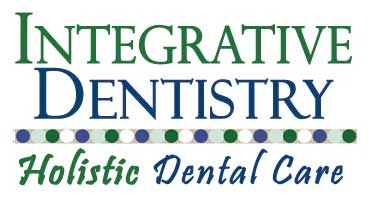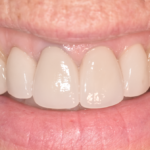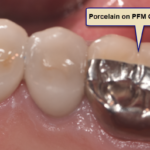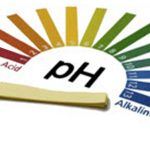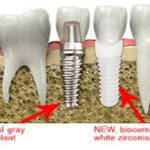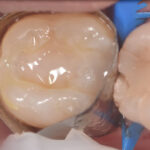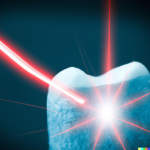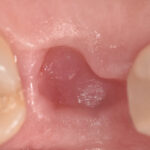
We know the virus is ‘novel’ meaning that it’s new and our immune systems have never seen it before. It’s also highly contagious. It can live on hard surfaces for up to 17 hours and in the air for 3 hours. What are the symptoms of Covid 19? They could mimic the symptoms of the common cold or the flu, meaning runny nose, sore throat and mucous. It could also cause a dry cough. The good news is that the incubation period for Covid 19 is fairly long. Most estimates average around 5 days. Also, it doesn’t infect the lungs right away.
So the first thing you should do is seek the help of a health practitioner to find out what treatment is available. We recommend you work with an integrative physician or naturapath to support your health. Some companies are working on FDA approval for simple home test kits, which will hopefully be available soon. If you have the above symptoms during the last 4 months or so, It is possible that you may have had a Covid 19 exposure, according to Stanford University. This could be a good thing, because you may have already build up immunity to the virus.
If this virus is more contagious than other viruses, shouldn’t I be afraid of catching it? Doesn’t living in fear and uncertainly cause stress and anxiety? And doesn’t that lower immunity? The answer to both of these questions is yes. In my opinion, we have to use this time to strengthen our immune systems to deal with this ongoing threat, and not be so afraid of catching this virus. First of all, that is no way to live. Second, the reality is that most of use will be exposed to it at some point. Our immune systems need to be healthy enough to respond to it and recover from it. So the focus changes from not catching it, to lessening its effects.
So how do we achieve this? One important means of strengthening our immune systems is with supplementation. Dr O recommends these specific supplements: The Fantastic Five
- Vitamin D3. Actually, it acts more like a hormone, modulating calcium and magnesium balances in the blood and bone. It also balances other hormone levels like adrenaline, norepinephrine, dopamine and seratonin. Additionally it modulates brain hormones responsible for motor movements/coordination, and emotions like depression. Vitamin D3 also helps to regulate insulin and blood sugar levels. I talk more about what Vitamin D3 does in another article: The 5 Most Important Dietary Factors in Dental Health
- K2 in the form of MK7 is a partner to vitamin D3 and is often combined with it. Our bodies need vitamin K2 to get calcium out of the blood vessels where it doesn’t need to be and into the bone where it does need to be. Calcium has to be removed from the blood so it cannot contribute to conditions like osteoporosis and arteriosclerosis.
- Magnesium as Mg+2 is as important as calcium to our health and bone metabolism. A lot more people are deficient in magnesium than calcium, which is prevalent in our Western diet. Common forms are magnesium gluconate or citrate. One of the best ways to get magnesium in is through Epsom salt baths, which is magnesium sulphate, because it is readily absorbed through the skin. Warm baths are very nurturing as well.
- Vitamin C is an effective antioxidant that lowers cytokines, inflammation and free radical damage. The story of Captain Cook’s sailors healing from scurvy in the 18th century by eating fresh oranges illustrates this. To learn more about the importance of Vitamin C to our health, read another article about it here: What’s the Most Important Vitamin for Dental Health?
- Zinc. According to the European Journal of Immunology, the human body needs zinc to activate T lymphocytes (T cells), which control and regulate immune responses and attack infected cells. An essential micro nutrient, zinc deficiency can severely impair immune system function.
Dr O’s Suggestions:
- Maintain Vitamin D3 levels in the blood at 70-100 by taking between 5,000 and 10,000 IU’s/day
- Combine with 100 mcg of Vit K2 as MK7 per day. Mcg is micrograms not milligrams which is mg.
- Take Epsom salt baths 2-3X per week or take another form of magnesium
- Take 5-10,000 mg of Vitamin C daily. Start with 2,000 mg/day and build up to prevent diarrhea.
- Zinc is readily available from a diet containing seafood, dairy products, nuts, legumes and whole grains. Recommended levels of zinc for adults 19 years and older (including pregnancy and lactation): 40 mg/day. Consult your doctor if you are already taking zinc under medical supervision.
Amp up antioxidants. Antioxidants are important for health because they decrease inflammation in the body. Besides decreasing inflammation, they lower the odds of having a cytokine storm. Cytokines are signaling proteins and peptides that regulate immune response in our bodies. A cytokine storm is when our bodies are overrun with pro inflammatory proteins. Cytokine storms are what cause the most serious cases of Covid 19. So we should reduce systemic inflammation as much as possible. When it comes to Covid 19, some antioxidants are more significant than others. Here is a short list for you to consider:
- Vitamin C – As discussed above
- Melatonin – 3 mg per day at bed time – the same amount you need to sleep. Melatonin has interesting potential because it prevents cytokine storms, one of the complications with more severe Covid 19 cases. It is also found in higher amounts with children. This is especially interesting as Covid 19 has a lower infection rate in children.
- Quercetin is an antioxidant that sits on the cell membrane and competes with virus binding sites. This is an interesting antioxidant as it helps with gut health and lung health specifically. A lab experiment was done exposing lab animals to the equivalent of 400 cigarettes a day. Of the group that was fed quercetin all survived, while all in the group that was not died. While you get 10-100 mg naturally in your diet, you can also supplement with it from 400-1000 mg per day in powder or capsule form, spread out over three meals,.
- Vitamin E or Tocotrienols, especially Delta and Gamma forms, maintain an open cardiovascular system, bolster immune function and compete with viruses by binding to cell membranes.
- Elderberry – They call it the ‘Elder’ berry for a reason. It promotes longevity, lowers inflammation and protects the heart. It is recommended to ease symptoms of colds and flu. The popular Wellness Formula is an herbal blend containing elderberry, along with other immune supports.
- Resveratrol – Decreases virus replication
Another way to be proactive is to get a blood panel evaluated by a qualified practitioner to see where your blood markers are currently. This is so that you get a baseline that can be referred to in the future to track changes. One of the things we can look at are blood markers for systemic inflammation. Other important markers include those indicating the health of your immune system. Additionally these markers will indicate whether you are dealing with a current infection, as well as a more long term infection. You can also find out about nutritional imbalances and deficiencies that are important to correct. Examples are HDL/LDL/Cholesterol levels, electrolytes like magnesium and potassium and the performance of certain organs important for responding to Covid 19, specifically the liver and intestines.
Here is a short list to discuss with your healthcare providers:
- Higher levels of oral Vitamin C or even IV Vitamin C infusions from 7 to 10 grams 3 days in a row
- Melatonin at approximately the same dosage you need to put you to sleep
- Get an inhaler/diffusor and put Propolis drops in it so you can breathe and coat your mucous membranes. Propolis is also an antioxidant and anti-inflammatory agent
- Consider going off high blood pressure medication. A recent study by Louisiana State University Health Sciences shows how ACE inhibitors and angiotensin receptor blockers may increase the risk of severe COVID-19 cases. ACE inhibitors are a class of high blood pressure medications and have been shown to increase the virus receptor sites in your lungs.
The paper warned against going off blood pressure medications, as it has not been approved to do so. However, the paper is very clear in it’s presentation of the danger, and if you or your parents are on high blood pressure medication, I would discuss it with your physician and get his/her advice on this.
Full disclosure: I am a dentist and not licensed to give advice on high blood pressure, heart disease or Covid 19 infections, nor do I treat them. I am also not recommending that you go off your medications. For advice on this you should see a qualified doctor. Here is an article that discusses this in more detail: High Blood Pressure Medication and Covid 19 Infections
Meanwhile, take time during the ‘shelter in place’ mandate to slow down and rethink how to best approach self care and care for your families.

Carey O’Rielly DDS has been a practicing dentist for 35 years. He went to USC Dental School and Duke University for his undergraduate degree. He grew up in Laguna Beach and now lives in La Costa with his wife Victoria, who runs his office.
He began his career by owning and operating a network of six offices in the San Francisco Bay Area. Presently he owns a private holistic practice in North County San Diego’s Encinitas.
Dr. O started looking for solutions to his health challenges that resulted from the stress and environmental toxicity that built up over a ten year period running his dental network. He has dedicated himself to learning about oral systemic problems and how dentistry can affect your health. He has applied what he has learned over the last twenty years to ensure he, his staff and his patients are protected from the chemicals and toxic materials found in most dental offices. He has produced an environmentally friendly office that is also peaceful and calm.
He is an expert on dental materials having looked at hundreds of biocompatibility lab tests over the years. He has identified the most bio-friendly materials to use in his practice and which dental materials can be used to replace metal fillings and crowns, including BPA free and fluoride free ‘white’ fillings. He also uses metal-free Zirconia or ceramic implants and PRF (platelet-rich fibrin) grafting materials which come from the patient’s own blood.
Dr. O’Rielly teaches C.E. courses on the systemic effects of gum disease. He is an expert in using phase contrast microscopy for analyzing dental infections, where he shows patients what kind of microbes, i.e. bacteria, amoeba, and yeasts like candida are populating the mouth and affecting the body as a whole.
He has an educational blog and is writing a book on dental health called ‘Hidden Dental Infections: Healing Root Canals and Infected Teeth with the Erbium Laser’ where he discusses dental nutrition, toxic dental materials and the effects of old root canals on inflammation and overall health.
